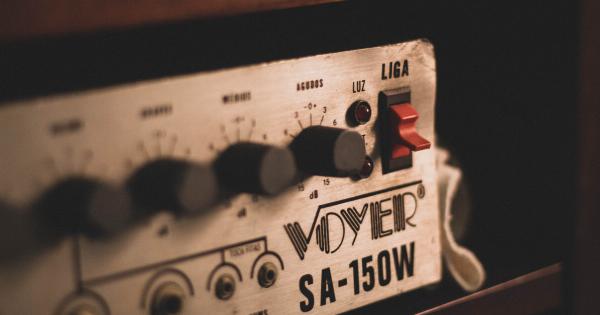Mental health is a growing concern in today’s society, with millions of people experiencing various forms of mental discomfort.
Traditional methods of diagnosing and treating mental health issues often rely on self-reporting symptoms, which can be subjective and challenging to assess accurately. However, a new innovative medical tool is revolutionizing the way mental discomfort is identified and treated, all through the power of music.
The Power of Music Therapy
Music therapy has long been recognized for its ability to provide emotional support, reduce stress, and enhance overall well-being. It has been successfully used in treating conditions such as anxiety, depression, and post-traumatic stress disorder.
Researchers have discovered that specific musical elements, such as rhythm, tempo, and melody, can significantly impact our emotional state and brain activity.
Building upon this knowledge, experts in the field have developed an innovative medical tool that leverages music’s power to identify and analyze mental discomfort.
This tool combines advanced technology, artificial intelligence, and the expertise of mental health professionals to deliver accurate diagnoses and effective therapies.
How the Innovative Medical Tool Works
The innovative medical tool begins by collecting various physiological data from individuals who may be experiencing mental discomfort. This data includes heart rate, skin conductance, and other relevant biomarkers.
Simultaneously, the tool utilizes machine learning algorithms to analyze the musical preferences and responses of individuals.
By comparing the physiological data with the musical preferences and responses, the medical tool can identify patterns indicating potential mental discomfort.
For example, an increased heart rate combined with a negative emotional response to a particular type of music may suggest anxiety or distress.
This data-driven approach provides a more objective and accurate assessment of an individual’s mental state, reducing the reliance on subjective self-reports.
It also enables mental health professionals to tailor their interventions and therapies more effectively.
Virtual Reality Integration
An exciting aspect of this innovative medical tool is its integration with virtual reality (VR) technology.
VR creates a highly immersive and interactive environment that can be customized to provide therapeutic experiences based on an individual’s musical preferences and emotional needs.
By combining music therapy with VR, individuals can engage in guided experiences that help them explore and address their mental discomfort in a safe and supportive environment.
Virtual reality has been shown to enhance treatment outcomes by promoting emotional regulation, increasing self-awareness, and providing a sense of presence and control.
Personalized Treatment Plans
The innovative medical tool also generates personalized treatment plans based on the collected data and analysis.
Mental health professionals can access detailed reports outlining an individual’s musical preferences, emotional responses, and physiological indicators of mental discomfort.
These reports serve as a valuable resource for tailoring treatment approaches that are specifically designed for each individual.
By leveraging the power of music and the insights provided by the tool, clinicians can develop targeted interventions that resonate with the patient’s unique needs and preferences.
The Benefits of the Innovative Medical Tool
The innovative medical tool offers numerous benefits in the realm of mental health diagnosis and treatment. Some of the key advantages include:.
1. Objective Assessment:
By combining physiological data and musical responses, the tool provides a more objective assessment of an individual’s mental state, reducing the subjectivity of self-reporting.
2. Early Detection:
The tool can detect early signs of mental discomfort before individuals may even be aware of their symptoms. This allows for interventions and treatments to begin at the earliest stages, improving long-term outcomes.
3. Tailored Therapies:
With detailed insights into an individual’s musical preferences and emotional responses, mental health professionals can tailor therapies to better resonate with patients, leading to enhanced treatment efficacy.
4. Interactive Experiences:
The integration with virtual reality technology facilitates interactive and immersive therapeutic experiences, providing individuals with a safe and engaging environment to explore and address their mental discomfort.
Conclusion
With the increasing prevalence of mental health issues worldwide, innovative solutions are needed to improve diagnosis and treatment effectiveness.
The use of music therapy, combined with advanced technology and artificial intelligence, offers a promising approach to identify and address mental discomfort.
The innovative medical tool discussed in this article provides a unique and data-driven way to understand an individual’s mental state based on physiological responses and musical preferences.
By leveraging virtual reality, tailored therapies can be developed to enhance treatment outcomes.
As the field of mental health continues to evolve, the integration of music therapy and technology offers a new horizon for more accurate and personalized care.
With the help of this innovative medical tool, mental discomfort can be identified and treated with greater precision, ultimately improving the well-being of individuals worldwide.



























